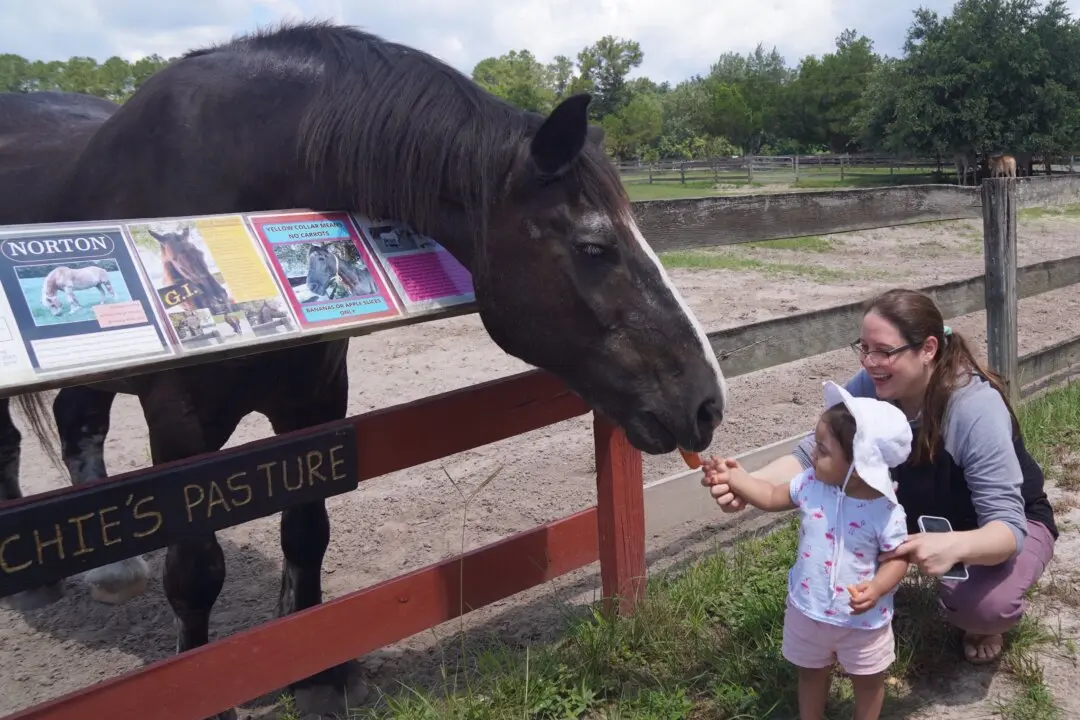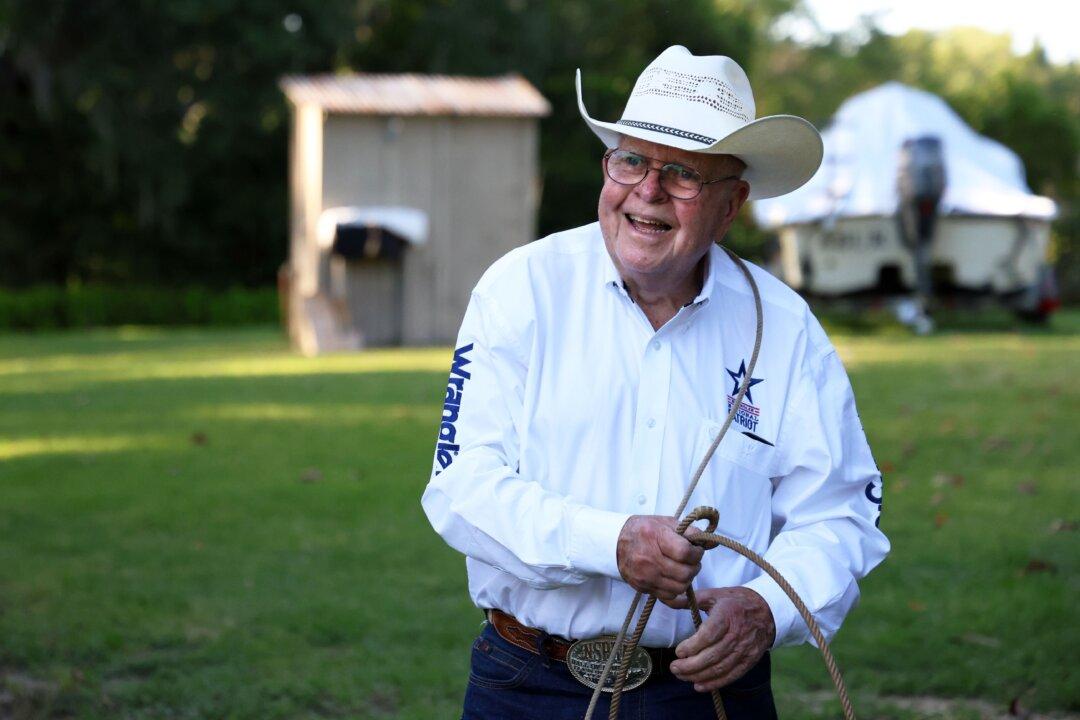ALACHUA, Fla.—Tucked away in the woods of North Florida, 132 retired horses—some of them ancient in equine terms—graze and romp on acres of lush, hilly pastures.
The Retirement Home for Horses at Mill Creek Farm honors some of America’s distinguished public servants, equines that served in law enforcement and military units until age or injury ended their careers. The 335-acre farm guarantees its residents a safe home for the remainder of their lives.




